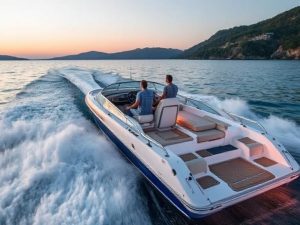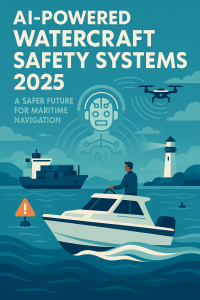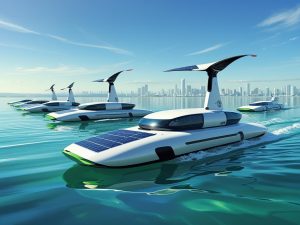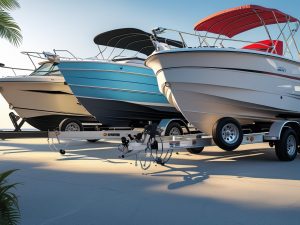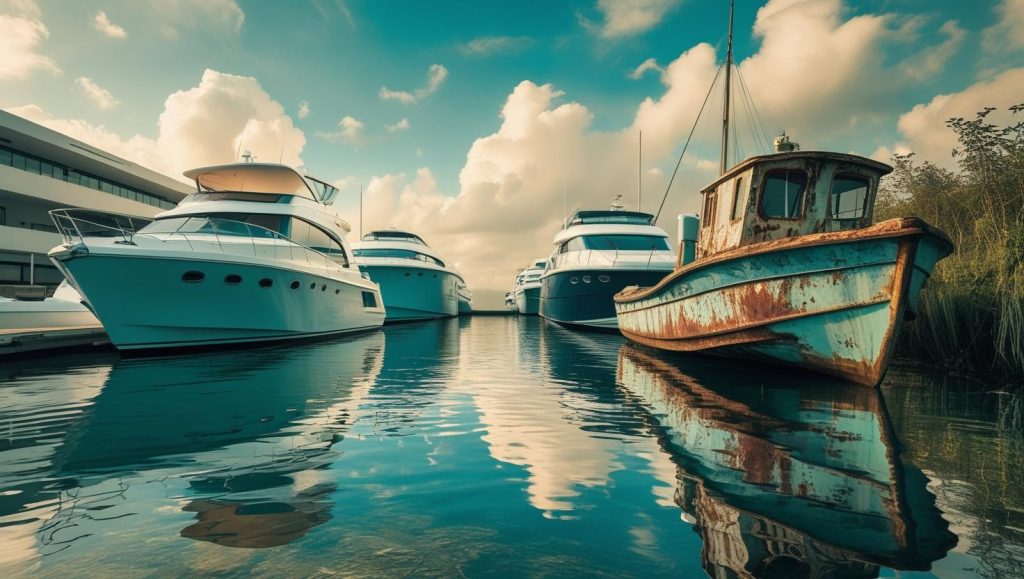
Are you planning to buy a boat in 2025? Whether you’re a first-time buyer or an experienced boater looking to upgrade, one of the biggest decisions you’ll make is choosing between a new or used boat. Each option has its own benefits, risks, and financial considerations.
This comprehensive guide will walk you through the pros and cons of buying new vs used boats, cost comparisons, tips for inspections, maintenance expectations, financing options, resale value, and much more.
Let’s dive in.
🛥️ Why Buy a Boat in 2025?
The boating industry has seen a massive resurgence in recent years. With increasing demand for recreational activities and advancements in boat technology, 2025 is shaping up to be one of the best years to invest in watercraft. Key reasons include:
-
Enhanced fuel efficiency in newer models
-
Eco-friendly propulsion systems
-
Easier access to financing
-
Wider variety of models available
But before you make your purchase, it’s crucial to decide: Should you buy a brand-new boat or a pre-owned one?
⚖️ New vs Used Boats: A Quick Comparison
| Feature | New Boats | Used Boats |
|---|---|---|
| Price | Higher upfront cost | Lower purchase price |
| Warranty | Full manufacturer warranty | Limited or no warranty |
| Condition | Pristine and untouched | Wear and tear possible |
| Customization | Fully customizable | Limited to existing setup |
| Depreciation | Rapid in first 1-3 years | Slower depreciation |
| Maintenance | Minimal early on | May need repairs sooner |
| Financing | Easier to finance through dealers | May face higher interest rates |
| Insurance Cost | Typically higher | Usually lower |
🚤 Advantages of Buying a New Boat
1. Full Manufacturer Warranty
New boats come with manufacturer warranties, which typically cover parts, labor, and major systems for a few years. This gives you peace of mind knowing that costly repairs are unlikely in the early years.
2. Latest Technology and Features
New boats in 2025 often feature the latest GPS systems, fish finders, fuel-efficient engines, and eco-friendly innovations. If you’re looking for cutting-edge design and performance, a new model may be the way to go.
3. Customization Options
Want a custom color, layout, or added features like Bluetooth speakers or additional seating? Buying new means you can build your boat to suit your needs.
4. Lower Initial Maintenance
A new boat is less likely to experience mechanical issues in the first few years, meaning lower repair costs and more time on the water.
⚓ Disadvantages of Buying a New Boat
1. Higher Upfront Cost
New boats can cost anywhere from $20,000 to over $500,000, depending on the model. That’s a significant investment.
2. Immediate Depreciation
Like a new car, boats lose value rapidly once they leave the dealership. On average, a new boat loses 15-20% of its value in the first year.
3. Higher Insurance Premiums
New boats usually come with higher insurance costs, reflecting their increased value and replacement cost.
🧭 Advantages of Buying a Used Boat
1. Lower Purchase Price
Used boats can cost 30-50% less than new ones, making boating more affordable for beginners or budget-conscious buyers.
2. Slower Depreciation
Because the boat has already depreciated, your resale value holds steadier, especially if the boat is well maintained.
3. More Buying Power
With a smaller budget, you may be able to afford a larger or more feature-rich used boat compared to a smaller, new boat.
4. Immediate Availability
Used boats are often available immediately, while new boats may involve wait times or build schedules.
⚠️ Disadvantages of Buying a Used Boat
1. Potential for Hidden Issues
Unless properly inspected, used boats may have hidden damage, rust, mold, or engine problems that can be costly to fix.
2. No Warranty
Most used boats are sold as-is, meaning you’re responsible for any future repairs unless you purchase an extended service plan.
3. Outdated Technology
Older boats may lack modern conveniences, GPS integration, or newer fuel-efficient engines.
4. Financing Challenges
Securing a loan for a used boat may involve higher interest rates or shorter loan terms, especially for boats over 10 years old.
🔍 Key Factors to Consider When Choosing New vs Used
1. Your Budget
Factor in not just the purchase price but also:
-
Storage
-
Insurance
-
Fuel
-
Maintenance
-
Upgrades or repairs
2. Intended Use
Will you be:
-
Fishing offshore?
-
Cruising with the family?
-
Racing?
-
Living aboard?
Your usage can help determine if new reliability is necessary or if a well-maintained used boat will suffice.
3. Experience Level
First-time buyers may benefit from used boats because:
-
There’s less financial risk
-
You can learn boating maintenance without worrying about voiding a warranty
🛠️ How to Inspect a Used Boat Before Buying
If you’re leaning towards a used boat, inspection is critical. Here’s what to look for:
-
Hull Damage: Check for cracks, blisters, or signs of repair
-
Engine Hours: Fewer hours generally means less wear
-
Oil Condition: Dark, dirty oil can be a red flag
-
Steering and Controls: Should feel smooth and responsive
-
Electrical Systems: Test all switches, lights, GPS, bilge pumps
-
Leaks or Odors: Smells of mold or fuel may indicate trouble
-
Surveyor Inspection: Hire a marine surveyor for a full professional inspection
💰 Financing a Boat in 2025: New vs Used
For New Boats:
-
Easier to qualify for loans
-
Longer terms (10-20 years)
-
Lower interest rates
-
Manufacturer or dealer incentives
For Used Boats:
-
Requires strong credit
-
Higher interest rates (especially for older models)
-
Shorter terms (5-15 years)
-
May require a larger down payment
Tip: Get pre-approved before shopping to know your budget.
🧾 Resale Value: New vs Used Boats
New boats depreciate faster, which can be a downside if you plan to upgrade within a few years.
Used boats, on the other hand, tend to retain their value more consistently, especially if:
-
You maintain service records
-
You keep the boat clean and protected
-
You use it responsibly
Tip: When buying used, choose popular models with a good resale reputation.
🌊 Environmental Considerations
In 2025, more buyers are seeking eco-conscious boats. New models now include:
-
Electric motors
-
Hybrid engines
-
Solar-powered systems
Used boats may lack these features, but retrofitting is sometimes possible—though costly.
🗓️ What’s New in 2025 for Boat Buyers?
-
AI-Integrated Systems: New boats now offer self-docking and weather-adaptive performance
-
Digital Dashboards: Real-time engine diagnostics and navigation help prevent issues
-
Subscription Boating Models: Some new boats come with “fractional ownership” or time-share options
These features are almost exclusive to new boats in 2025.
✅ Final Verdict: Should You Buy New or Used?
There’s no one-size-fits-all answer. Your best choice depends on your budget, goals, and experience level.
-
Choose a new boat if:
-
You want warranty protection
-
You have the budget
-
You value new tech and eco-features
-
-
Choose a used boat if:
-
You’re looking for affordability
-
You’re okay with older technology
-
You’re willing to inspect and maintain
-
📋 Summary Table: Decision Checklist
| Criteria | Best Choice |
|---|---|
| Budget Under $50,000 | Used Boat |
| First-Time Buyer | Used Boat |
| Family & Safety Priority | New Boat |
| Want Warranty & Support | New Boat |
| Short-Term Ownership | Used Boat |
| Eco-Conscious Features | New Boat (2025+) |
🙋 Frequently Asked Questions (FAQs)
1. Is it better to buy a new or used boat in 2025?
It depends on your goals. A new boat offers the latest technology and warranty, while a used boat is more affordable and can provide great value if well maintained.
2. Do boats lose value like cars?
Yes, boats depreciate, especially new ones. A boat may lose 15-25% of its value in the first year.
3. How can I check the history of a used boat?
Use the boat’s HIN (Hull Identification Number) to get a Boat History Report through services like Boatfax or Marinesurveyor.com.
4. What is the average lifespan of a boat?
With proper care, a boat can last 20–30 years or more, though engines may need overhauls after 1,500–2,000 hours.
5. Can I get a loan for a used boat?
Yes. Many lenders offer used boat loans, but rates and terms may be less favorable than for new boats.
6. Are boat prices expected to rise in 2025?
Yes. Due to increased demand, inflation, and higher manufacturing costs, boat prices—especially for new models—are projected to rise in 2025.
7. Should I get a marine survey?
Yes, especially when buying used. A marine survey can uncover structural, electrical, and mechanical issues not visible to the untrained eye.
🧭 Final Thoughts
Choosing between a new vs used boat in 2025 doesn’t have to be difficult. Evaluate your needs, inspect thoroughly, budget wisely, and always consider long-term costs like storage, fuel, and insurance. Whether you go new or used, there’s a perfect boat out there waiting for you.



